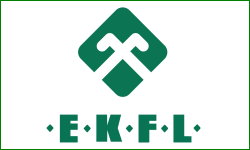 In June, inflation reached 2.4%, over the year. Goods were 1.8% and services 3.5% more expensive. Almost half of the increase in prices resulted from higher prices of food and housing. The prices of fresh vegetables have surged due to a drought last year. Housing has become more expensive due to higher solid fuels and rental prices. The price of electricity that was elevated since summer 2018, has declined in recent months and was below last year’s level in June.
In June, inflation reached 2.4%, over the year. Goods were 1.8% and services 3.5% more expensive. Almost half of the increase in prices resulted from higher prices of food and housing. The prices of fresh vegetables have surged due to a drought last year. Housing has become more expensive due to higher solid fuels and rental prices. The price of electricity that was elevated since summer 2018, has declined in recent months and was below last year’s level in June.
A broad range of entertainment-related services (hotels, restaurants, entertainment, hobbies) contributed a third to the total increase in prices in June. The prices of these goods and services have risen rapidly due to high demand (and households’ rapid growth in incomes) but also due to higher production costs caused by growing wages.
The price of transport decreased as motor fuels became cheaper in June compared to the same month last year. The price of crude oil declined due to negative risks in the world economy (trade war, etc) despite higher political tensions in the Middle East. To support oil prices, OPEC+ decided to extend existing production quotas for another 9 months.
Inflation was 2.6%, year-on-year, in the first 6 months in 2019, on average, so much slower than last year’s inflation rate of 3.4%. Consumer price growth should decelerate further in the second half of the year as the prices of energy and food are expected to grow more slowly and the excise taxes on alcohol were lowered in July. The latter reduces CPI by around 0.2 percentage point.














